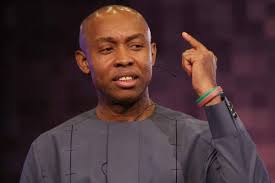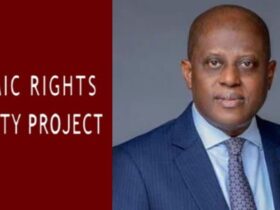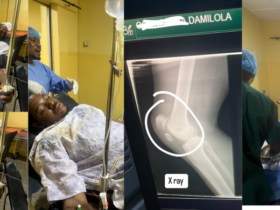Chidi Anselm Odinkalu who serves as a Nigerian human rights activist, lawyer, professor and writer, emphasized on the judiciary immense of power while in the nature of things, judges cannot be democratically accountable for their decisions. Which is therefore a matters very much that their role should be regarded as legitimate by the public at large.
In Odinkalu’s article said the 12 new judges of the FCT High Court, at least seven were family members of serving or living judicial figures and three were family members of persons directly involved in the appointment process.
Odinkalu further stated that among these, the Chief Justice of Nigeria, who presided over the appointment, had his daughter-in-law made a judge; the Chief Judge of the FCT High Court made his daughter a judge; and the President of the Court of Appeal got her daughter appointed a high court judge for the second time in three years. “In 2021, Governor Simon Lalong of Plateau State had made the same daughter a judge of the Plateau State High Court” Odinkalu added.

Abuja, Nigeria’s federal capital, is a place where mutual intercourse between lawyers, politicians and judges is both natural and habitual. It is home to judges too numerous to count and host to the headquarters of many court systems, including the High Court of the Federal Capital Territory (FCT High Court) as well as of Nigeria’s Court of Appeal and Supreme Court. The headquarters of the Court of Justice of the Economic Community of West African States (ECOWAS Court of Justice) is also in Abuja.
READ MORE: JUST IN: Wike’s Wife, Eberechi Sworn In As Justice Court Of Appeal
The pace of production and reproduction in the courts in Abuja has been rather dizzying recently. On the penultimate day of the past working week, Nigeria’s Supreme Court in a case instituted by the Federal Government against the states issued a decision designed to make it mandatory for local government to be run only by elected officials. This judgment has unlocked a predictable scrum of both political ululation and lamentation but the risk remains that its full benefits are likely to be undermined by the well-established jurisprudence of the Supreme Court in favour of bandit ballots which support the production of leaders at all levels who lack electoral legitimacy.
The day before the Supreme Court judgment, on the approach to the fourth anniversary of Nigeria’s #EndSARs uprising of 2020, the ECOWAS Court of Justice ruled that the conduct of the Nigerian government and its security agencies in their response to the #EndSARS uprising violated the guarantees of “security of person, prohibition of torture and cruel, inhuman, and degrading treatment, rights to freedom of expression, assembly, and association, duty to investigate human rights violations, and right to effective remedy.” In effect, the Court said that the Nigerian government engaged in a cover-up of the violations that occurred during the #EndSARS protests, especially at the Lekki Tollgate in Lagos.
Follow the Parallel Facts channel on WhatsApp: https://whatsapp.com/channel/0029VaCQSAoHgZWiDjR3Kn2E









Leave a Reply